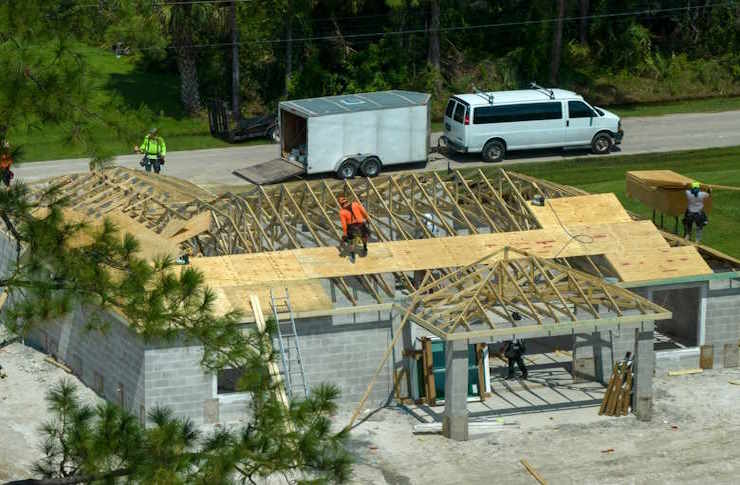Exploring welding jobs in Switzerland: opportunities and challenges
Switzerland's manufacturing and construction sectors rely heavily on skilled welders, making welding a valuable trade within the country's robust industrial landscape. The welding profession offers various career paths across multiple industries, from precision manufacturing to large-scale construction projects. Understanding the current market conditions, required qualifications, and potential challenges helps professionals make informed decisions about pursuing welding careers in Switzerland.

Current Market Conditions for Welders in Switzerland
The demand for skilled welders in Switzerland remains steady across several key industries. Manufacturing companies, particularly those in the automotive, aerospace, and machinery sectors, consistently seek qualified welding professionals. Construction firms working on infrastructure projects, including bridges, buildings, and industrial facilities, also contribute to the ongoing need for welding expertise.
Switzerland’s precision manufacturing industry creates unique opportunities for welders specializing in high-quality, detailed work. The country’s reputation for excellence in engineering and manufacturing means welders often work with advanced materials and cutting-edge technologies. Energy sector projects, including renewable energy installations and maintenance of existing infrastructure, further contribute to welding job availability.
Required Training and Professional Qualifications
Professional welding positions in Switzerland typically require formal training and recognized certifications. The Swiss vocational education system offers apprenticeship programs that combine practical experience with theoretical knowledge. These programs usually last three to four years and provide comprehensive training in various welding techniques and safety procedures.
International welders seeking opportunities in Switzerland often need to have their qualifications assessed and potentially supplemented with additional training to meet local standards. Key certifications include proficiency in specific welding processes such as TIG, MIG, and arc welding. Many positions also require knowledge of blueprint reading, metallurgy, and quality control procedures.
Language skills play an important role in qualification requirements. While technical skills are essential, basic proficiency in German, French, or Italian (depending on the region) often proves necessary for workplace communication and safety compliance.
Financial Compensation in the Welding Industry
Welding professionals in Switzerland can expect competitive compensation packages that reflect the country’s generally high wage standards. Entry-level positions typically offer salaries ranging from CHF 45,000 to CHF 55,000 annually. Experienced welders with specialized skills can earn between CHF 60,000 and CHF 75,000 per year.
Geographic location within Switzerland influences salary levels, with positions in major industrial centers often offering higher compensation. Specialized welding work, such as underwater welding or work with exotic materials, commands premium rates. Many positions include additional benefits such as health insurance, pension contributions, and overtime pay opportunities.
| Experience Level | Annual Salary Range (CHF) | Typical Industries |
|---|---|---|
| Entry Level (0-2 years) | 45,000 - 55,000 | General manufacturing, construction |
| Mid-Level (3-7 years) | 55,000 - 65,000 | Automotive, machinery, infrastructure |
| Senior Level (8+ years) | 65,000 - 75,000+ | Aerospace, precision manufacturing, specialized projects |
Prices, rates, or cost estimates mentioned in this article are based on the latest available information but may change over time. Independent research is advised before making financial decisions.
Professional Challenges in Swiss Welding Careers
Working as a welder in Switzerland presents several unique challenges that professionals should consider. The country’s high cost of living, particularly housing costs, can significantly impact take-home income despite competitive wages. Urban areas with the most job opportunities often have the highest living expenses.
Safety regulations in Switzerland are comprehensive and strictly enforced, requiring welders to maintain current knowledge of evolving safety standards and procedures. The precision standards expected in Swiss manufacturing can create pressure to maintain consistently high-quality work with minimal error tolerance.
Career advancement opportunities may require additional training or specialization, potentially involving time and financial investment. Language barriers can limit job mobility between different linguistic regions of the country. Seasonal variations in construction work can affect job stability for welders primarily employed in outdoor projects.
Industry Sectors and Employment Information
This information represents general industry overview rather than specific job listings or active hiring announcements. Various sectors in Switzerland utilize welding professionals, including manufacturing companies in automotive and machinery production, construction firms handling infrastructure and commercial projects, and energy companies maintaining industrial facilities.
Aerospace and precision manufacturing sectors offer specialized opportunities for welders with advanced skills and certifications. Maintenance and repair services across multiple industries also provide steady employment prospects. Many companies operate apprenticeship programs that combine employment with ongoing training.
Job seekers should research current market conditions and verify specific opportunities through official employment channels and industry associations. Professional networking and direct contact with potential employers often prove more effective than relying solely on general market information.
Switzerland’s welding industry offers solid career prospects for qualified professionals willing to meet the country’s high standards for training and performance. Success requires understanding both the opportunities available and the challenges inherent in working within Switzerland’s unique economic and regulatory environment. Thorough research and proper preparation help welding professionals make informed decisions about pursuing careers in this stable and well-compensated field.




